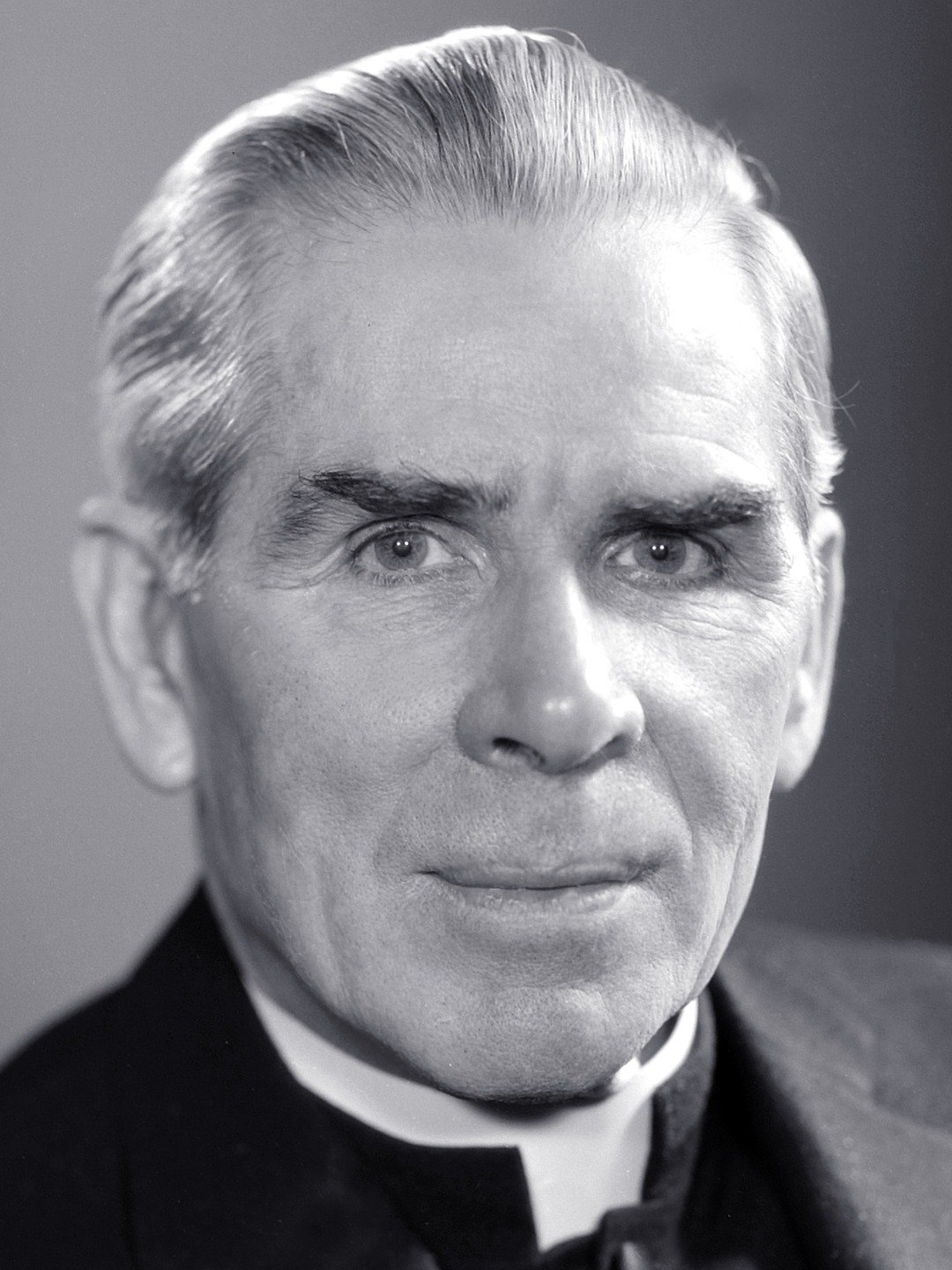Life is Worth Living 1956
Archbishop Fulton J Sheen  (March 18, 1898 – August 26, 1984)
(March 18, 1898 – August 26, 1984)
HAVING vs. GIVING TO CHARITY
We need to have food, schools, love.
Having is concerned with property
Property is of two kinds: Real or Token
Real property: chalk cabbages spinach, ice cream, beds, land
Token property is an artifice or a symbol that stands for real wealth: stocks, bonds credit, money that has heen folded and money that has not been folded.
Real wealth, because it is physical and concrete, sets limits.to one’s self and to what we can consume.
In Australia there were some primitive people who could count only up to three. And they used to count: One, Two, Three, enough.
And why? Simply because, they killed three birds well, that was all they could consume in a day, they had no refrigerator.
Token wealth can be infinite.
The Right to property is personal
The Use of property is socially conditioned.
Personal right to property are limited:
MY YOUR
HORSE GARDEN
May I use my horse as I please?
May I send it over to your garden and eat your vegetables?
There are two possible errors that can creep into economics
Monopolistic Capitalism.
Western World Capitalism
Insisting on social use
Communism
In which all property belongs to the state and a man has no personal rights whatever.
Then the state owns all the chickens, all the eggs, all of the hens.
And it has a state cook that makes an omelette and you eat the omelette whether you like your eggs that way or not!
Both of the above economic systems are wrong because they violate a basic principal of property.
Now we come to the application of some of our principals.
First:
Every individual is entitled to personal property, to returns on that property. He is entitled to enough personal property to care for himself, for his family, to give them security, for the future; as well as an education.
All that is over and above that, in the truest sense of the term “wealth that is superfluous,” he owes to the poor.
He cannot say, the personal pronoun “mine” in the same way the bed on which he sleeps as he can say “mine” of his 2nd yacht.
His right diminishes as it gets to superfluity and social needs then begin to emphasize themselves.
Second:
Suppose a man is the head of an industry. He is entitled again to all that is necessary for himself, for his family, for their security and for his station in life. Then what about the superfluity? He may use that superfluity to pour it back again into his business in order to increase employment and aid the social good.
That man is them doing the work of munificence and liberality and is to be praised for it.
Third:
Tremendous Industrial Corporations.
The stockholder in justice is entitled to a return on his capital investment.
The work gives something more than cash. He gives his life (his time).
He is also entitled to some part of the social wealth which he helps to create, just as the stockholder is entitled to something.
Because no one class is entitled to take all of the profits.
Who will not like this:
The Stockholders will not get all the returns that they would like on their money. But they may actually get more, because the workers would be working on something that is their own!
The Labor Leaders would lose some of their privilege position and unfortunately some of the labor leaders are interested only in extracting increased purchasing power from industry instead of getting some form of co-ownership to the workers!
The Marxist want to take over the whole interest, so that neither capital nor labor have a share.
History reveals that never has there been any tyranny, never has there been any slavery, in a country where there has been a wide distribution of property.
But wherever you find a refusal to allow a man to own or co-own the things on which he works – there you find tyranny, there you find despotism, there you find slavery.
Wherever there is property, there is power.
Wherever there is property, there is a sense of responsibility.
This is freedom
This is responsibility
This is democracy!
